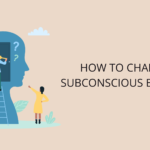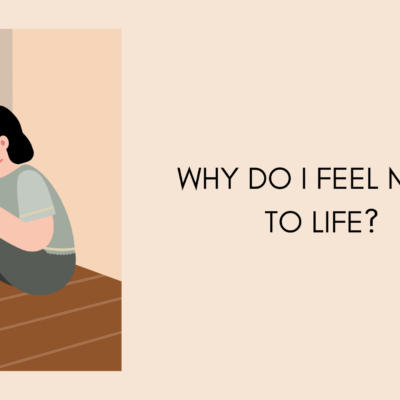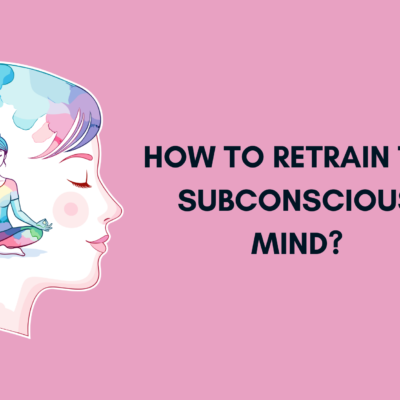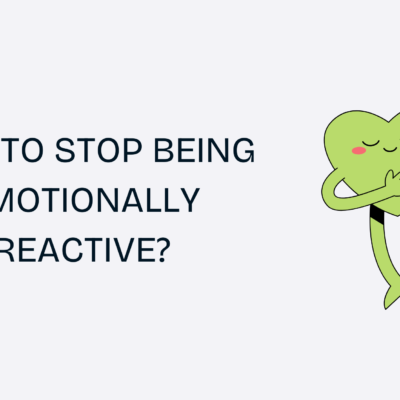How to Build Emotional Maturity: Emotional maturity isn’t about suppressing emotions or pretending everything is fine. It’s about learning to understand, regulate, and express your emotions in a healthy and constructive way. It means being able to respond rather than react, to reflect instead of blame, and to choose growth over comfort. Emotional maturity is a key ingredient in mental health, self-confidence, and strong relationships — yet it’s something many adults still struggle with.
In this article, we’ll explore what emotional maturity really means, why it matters, and how you can begin to build it within yourself.
Also Read:
What Is Emotional Maturity?
Emotional maturity is the ability to manage your emotions and behavior in a way that is appropriate to the situation. It involves:
- Self-awareness: Understanding your emotions, motivations, and patterns.
- Self-regulation: Managing impulses, stress, and reactions effectively.
- Empathy: Being able to consider and understand others’ perspectives and feelings.
- Accountability: Taking responsibility for your actions and their consequences.
- Growth mindset: Being open to feedback, learning, and change.
In short, emotional maturity is the space between emotion and action — the ability to pause, reflect, and then choose how you want to respond.
Why Emotional Maturity Matters
Emotional maturity affects every area of life. Without it, we may:
- React impulsively or defensively
- Struggle with communication
- Experience unstable relationships
- Avoid accountability
- Stay stuck in old patterns
With emotional maturity, on the other hand, we:
- Build healthier, deeper relationships
- Navigate conflict with more ease
- Develop a stronger sense of self
- Improve our emotional resilience
- Become more grounded and compassionate
1. Cultivate Self-Awareness
Self-awareness is the cornerstone of emotional maturity. You cannot change what you do not recognize.
How to build self-awareness:
- Reflect daily: Spend 5–10 minutes journaling or mentally reviewing your day. What triggered you? What did you avoid? What did you feel proud of?
- Name your emotions: Go beyond basic labels like “angry” or “sad.” Try identifying more specific emotions like “insecure,” “resentful,” “overwhelmed,” or “disappointed.” Emotional granularity helps in processing emotions better.
- Ask “Why?”: When you feel a strong emotion, ask yourself where it’s coming from. What need or wound is behind it?
- Seek feedback: Ask trusted people in your life how they experience you. Listen with openness, not defensiveness.
“Until you make the unconscious conscious, it will direct your life and you will call it fate.” — Carl Jung
2. Learn to Respond, Not React
Reacting is impulsive. Responding is intentional. Emotional maturity requires that we create a pause between stimulus and response.
Practices to develop emotional regulation:
- Pause and breathe: When triggered, try to pause. Take deep breaths to calm your nervous system before speaking or acting.
- Delay decisions: Don’t make major decisions while emotionally flooded. Wait until you feel calm.
- Label and validate: Say to yourself, “I feel hurt right now, and that’s okay. It makes sense that I’m feeling this.”
- Practice grounding techniques: Use mindfulness, cold water, movement, or other methods to regulate intense emotional waves.
3. Take Full Responsibility for Your Emotions
A hallmark of emotional immaturity is blaming others for how we feel. While others can trigger us, they don’t cause our emotions. Emotional maturity is about owning our internal world.
What this looks like:
- Saying “I feel hurt because this situation reminded me of…” instead of “You made me feel this way.”
- Taking accountability: “I overreacted, and that’s on me.”
- Choosing growth: “I recognize a pattern here, and I want to work on it.”
When we take responsibility, we take back our power. We stop waiting for others to change and instead focus on what we can do.
4. Develop Empathy and Compassion
Emotionally mature people understand that everyone has their own wounds, fears, and stories. Instead of judging or attacking others, they try to understand.
How to build empathy:
- Practice active listening: Give full attention. Reflect what the other person is saying. Avoid interrupting or rushing to offer advice.
- Ask deeper questions: “What are you feeling underneath that?” or “What do you need right now?”
- Imagine their world: Try to see the situation through their eyes, shaped by their life experiences.
- Separate behavior from identity: Instead of labeling someone as “toxic,” try to understand the pain or patterns behind their actions.
Empathy doesn’t mean tolerating bad behavior. It means responding with compassion, even when you set boundaries.
5. Learn the Art of Setting Boundaries
Emotionally immature people often struggle to say no, feel guilty for protecting their energy, or swing between being too passive or too aggressive. Emotionally mature individuals set clear, kind, and consistent boundaries.
To develop boundary skills:
- Know your limits: Tune into your body and emotions. When something feels off, don’t ignore it.
- Communicate clearly: Use “I” statements. For example: “I’m not comfortable discussing this right now.”
- Be consistent: Reinforce your boundaries calmly, even if people resist.
- Let go of guilt: Remember that boundaries are an act of self-respect, not selfishness.
Boundaries teach others how to treat you — and protect your peace in the process.
6. Embrace Vulnerability
Many people confuse emotional maturity with emotional detachment. But real maturity includes the courage to be vulnerable — to be honest about your feelings, needs, and struggles without shame.
Ways to practice vulnerability:
- Be honest with yourself: Admit when you’re hurting, lost, scared, or unsure.
- Express your needs: Practice saying, “I need more support,” or “I felt unseen when that happened.”
- Allow yourself to feel: Don’t numb or distract from your emotions. Let them pass through you.
Vulnerability isn’t weakness — it’s where connection, healing, and authenticity begin.
7. Let Go of the Need to Be Right
Emotionally immature individuals often argue to win. Emotionally mature individuals prioritize understanding over ego.
Letting go of “being right” means:
- Listening to understand, not to respond
- Apologizing even when it’s uncomfortable
- Acknowledging when you’ve hurt someone — even if it was unintentional
- Valuing connection over control
It’s not about giving in — it’s about choosing growth and peace over unnecessary conflict.
8. Practice Patience and Delayed Gratification
Maturity includes the ability to wait, to tolerate discomfort, and to hold off on immediate gratification in favor of long-term goals or healthier outcomes.
To strengthen patience:
- Practice small acts of waiting — in traffic, in conversations, or while craving distractions
- Remind yourself of your long-term values when tempted to react impulsively
- Trust the process — healing, relationships, and growth all take time
9. Commit to Ongoing Growth
Emotional maturity is not a destination — it’s a lifelong journey. You’ll have setbacks. You’ll make mistakes. But the willingness to keep learning is what matters most.
Ways to stay on the path:
- Read books or listen to podcasts on emotional health
- Work with a therapist or coach
- Surround yourself with emotionally aware people
- Reflect regularly on your progress
- Celebrate your emotional wins — even the small ones
Conclusion: Choose Maturity, Again and Again
Building emotional maturity isn’t easy. It asks you to unlearn old coping patterns, face your wounds, and take responsibility in a world that often rewards avoidance. But every step you take toward emotional growth frees you from your past and brings you closer to the life — and relationships — you truly want.
Emotional maturity doesn’t mean never feeling hurt, jealous, or overwhelmed. It means responding to those feelings with awareness, honesty, and compassion. It means breaking cycles, speaking your truth, and healing what’s within you.
It’s not about perfection — it’s about progress. And every time you choose growth over reaction, understanding over judgment, and love over ego, you build a stronger, wiser, and more grounded version of yourself.
Remember: Emotional maturity is not a trait you’re born with — it’s a skill you can develop. One choice, one moment, and one conversation at a time.






